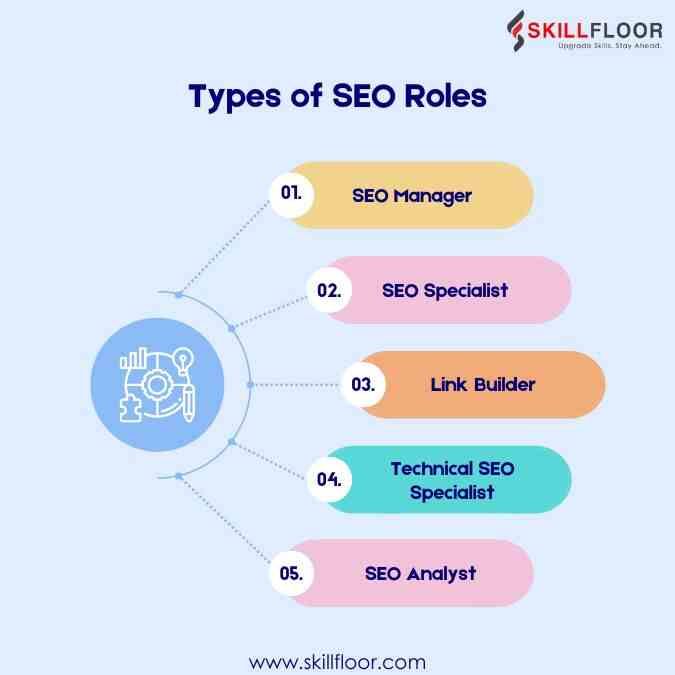SEO Roles and Responsibilities
Discover the key roles and responsibilities in SEO, including keyword research, on-page optimization, link building, and performance analysis.

Understanding SEO roles and responsibilities is critical in digital marketing for increasing a website's online presence. At its heart, Search Engine Optimization (SEO) entails a variety of operations targeted at enhancing a website's ranking in search results. Keyword research is an important aspect of SEO. This entails determining what terms or phrases individuals use in search engines to find what they need. SEO pros who understand these keywords can assist modify content to attract more visitors. They also prioritize on-page optimization, which includes ensuring that web pages are well-organized, that content is clear and relevant, and that all technical aspects, such as meta tags, are properly configured. Many businesses partner with a professional SEO agency to streamline these tasks and ensure best-practice execution.
In addition to on-page work, SEO roles and responsibilities include off-page optimization. Building quality backlinks from other websites helps to establish the site's credibility. SEO experts monitor search engine updates and alter their techniques accordingly. They frequently collaborate with content authors to ensure that what is released is not only engaging but also relevant to the specified keywords. Another important aspect of their job is tracking and analyzing how effectively a website performs, utilizing technologies such as Google Analytics to assess the effectiveness of their SEO efforts and make data-driven decisions to encourage growth.
1. SEO Manager
The SEO Manager is the person who oversees the overall SEO strategy for a company. They work to ensure that SEO efforts align with the business goals and are effectively executed across different teams.
Key Responsibilities:
-
Strategy Development: Creating a comprehensive plan that aligns SEO efforts with the company’s goals, considering market trends and competition.
-
Team Coordination: Working with content creators, web developers, and digital marketing teams to implement SEO strategies smoothly.
-
Performance Monitoring: Keeping an eye on how well the website is performing in terms of organic traffic, search rankings, and conversions, and reporting these findings to the relevant stakeholders.
-
Budget Management: Managing the budget for SEO tools, services, and campaigns wisely.
-
Continuous Learning: Staying updated with the latest SEO trends and changes in search engine algorithms to adjust strategies as needed.
2. SEO Specialist
An SEO Specialist dives into the nitty-gritty details of SEO, implementing the strategy laid out by the SEO Manager. They handle tasks like keyword research, on-page and off-page optimization, and technical SEO aspects.
Key Responsibilities:
-
Keyword Research: Finding the right keywords and phrases that potential customers use to search for products or services and incorporating them into website content.
-
On-Page Optimization: Making sure that web pages have the right meta tags, header tags, and URL structures to improve their search engine rankings.
-
Off-page optimization: Building and managing backlinks from reputable sources to increase the website’s authority and visibility.
-
Technical SEO: Ensuring the website is technically sound, with good site speed, mobile compatibility, and structured data that helps search engines understand the content.
-
Content Strategy: Working with content teams to develop SEO-friendly content that addresses the audience’s needs.
3. Link Builder
Link Builders focus on getting high-quality backlinks to improve a website’s authority and search engine rankings. Their work is crucial for off-page optimization.
Key Responsibilities:
-
Backlink Acquisition: Finding opportunities to get backlinks from authoritative websites through guest blogging, outreach, and partnerships.
-
Relationship Building: Developing and maintaining relationships with webmasters, bloggers, and influencers to support link-building efforts.
-
Content Promotion: Promoting content to earn natural backlinks from other websites, forums, and social media platforms.
-
Analysis and Reporting: Tracking the effectiveness of link-building campaigns and reporting on metrics such as the number and quality of backlinks obtained.
-
Competitor Analysis: Studying competitor backlinks to discover potential link opportunities and strategies for improvement.
4. Technical SEO Specialist
Technical SEO Specialists make sure that a website’s infrastructure is optimized for search engines. They identify and fix technical issues that could hinder search engine crawlers and affect rankings.
Key Responsibilities:
-
Site Audits: Performing detailed technical audits to identify issues related to site speed, mobile usability, crawl errors, and indexing problems.
-
Structured Data Implementation: Using structured data (schema markup) to help search engines better understand the content and improve how it appears in search results.
-
URL Optimization: Ensuring URLs are clean, descriptive, and optimized for both search engines and users.
-
Security Enhancements: Implementing security measures like HTTPS to protect user data and boost search engine trust.
-
Technical Recommendations: Providing actionable advice to web developers for fixing technical issues and enhancing site performance.
5. SEO Analyst
SEO Analysts focus on analyzing data to measure the effectiveness of SEO strategies and identify areas for improvement. They play a key role in tracking performance and helping to make informed decisions.
Key Responsibilities:
-
Data Collection: Gathering data on website traffic, keyword rankings, and other SEO metrics using tools like Google Analytics and SEMrush.
-
Performance Analysis: Analyzing data to understand trends, pinpoint areas for improvement, and evaluate the success of SEO campaigns.
-
Reporting: Creating reports and dashboards to share findings and insights with stakeholders.
-
Competitive Analysis: Monitoring competitor SEO strategies and performance to identify threats and opportunities.
-
Forecasting: Predicting future trends and performance based on past data and current market conditions.

How does link building impact SEO?
Link building is an important part of SEO that has a substantial impact on a website's ranking in search engine results pages (SERPS). A site can boost its authority and credibility in the eyes of search engines like Google by gaining high-quality backlinks from respectable and authoritative websites. These backlinks function as endorsements, informing search engines that the content on the linked site is useful and trustworthy. As a result, search engines are more likely to place the website higher in their rankings, potentially increasing visibility and organic visitors.
Link building also increases direct referral traffic in addition to improving search engine results. When visitors click on links from authoritative sites to your website, it can enhance relevant traffic, which can improve engagement and conversion rates. High-quality, shareable content, guest blogging, and developing relationships with industry influencers and bloggers are all effective link-building techniques. This multifaceted approach not only improves SEO but also helps a website establish its presence and reputation in its industry, ultimately contributing to long-term online success.
Understanding the tasks and responsibilities of SEO is critical for any firm that wants to succeed in digital marketing. Each function, from SEO Manager to SEO Consultant, adds value to a website's success by increasing exposure and garnering organic visitors. By explicitly defining these roles and enabling communication among team members, firms may traverse the complexity of SEO more efficiently and reach their digital marketing goals more easily.































































